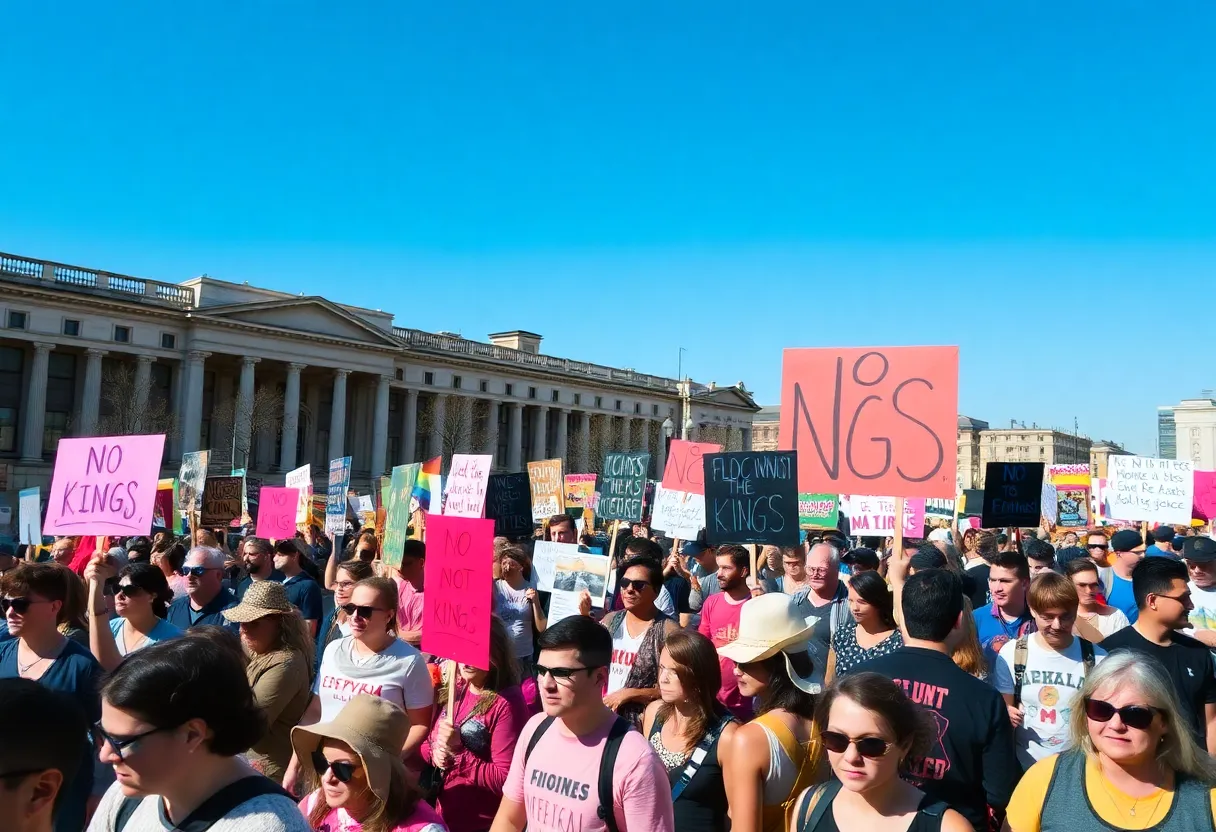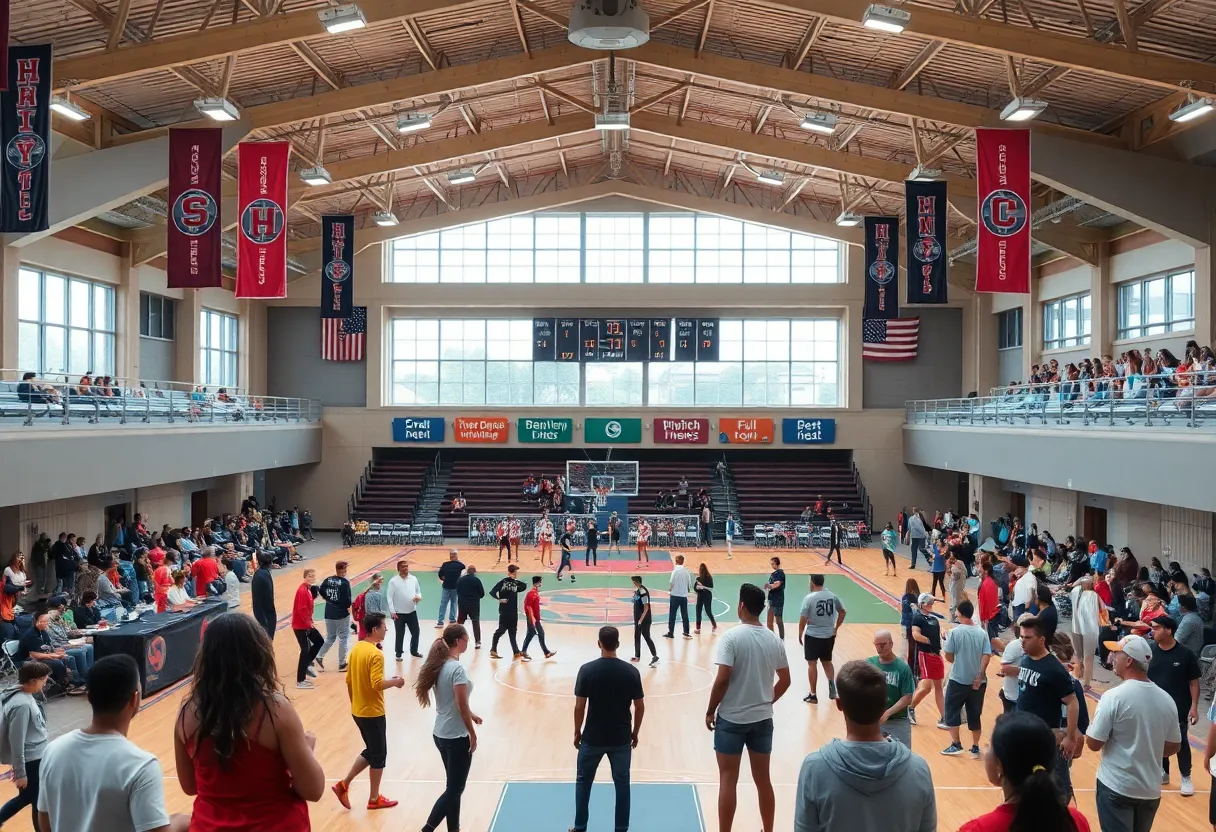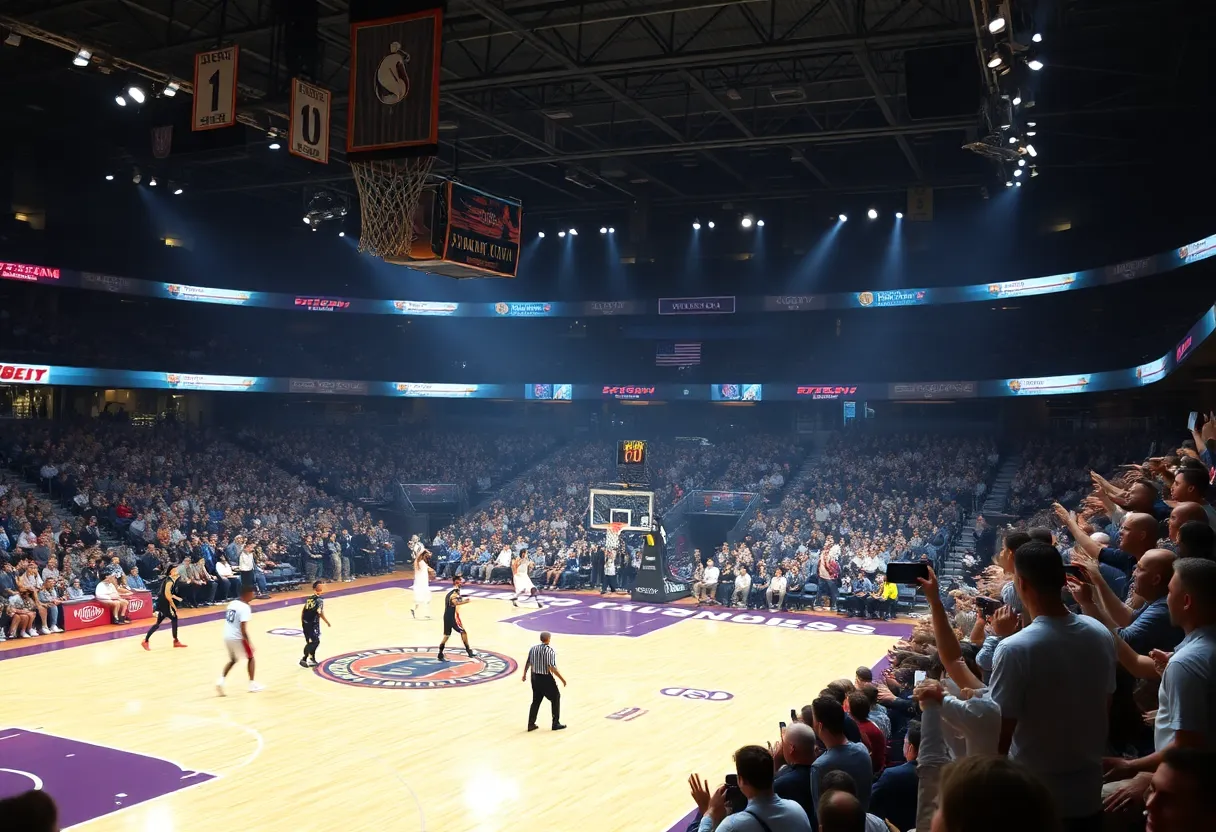Oklahoma City, October 27, 2025
In Oklahoma City, approximately 300 demonstrators gathered at Myriad Gardens to protest against political elitism as part of the ‘No Kings’ movement. The peaceful protests, which extended to 18 other cities in Oklahoma, highlighted grassroots activism urging voter engagement ahead of the midterm elections. Participants expressed demands for equality through chants and signs, with no arrests reported, demonstrating effective coordination between organizers and law enforcement.
Protests Against Political Elitism in Oklahoma City
Oklahoma City took center stage as ‘No Kings’ protests unfolded across 19 Oklahoma cities, drawing crowds in opposition to political elitism. In the city, approximately 300 demonstrators gathered at Myriad Gardens, marching peacefully with signs and chants advocating for equality. The event highlighted grassroots activism and proceeded without any arrests, as local police monitored the activities closely.
Details of the demonstrations in Oklahoma City included participants waving signs and chanting slogans focused on equality, emphasizing a call for broader societal change. Organizers linked the protests to similar movements across the state, stressing the importance of voter engagement in the lead-up to upcoming midterm elections. The gatherings remained orderly, with no reported incidents, underscoring the peaceful nature of the activism.
Supporting the core events, the protests extended beyond Oklahoma City to 18 other cities within the state, reflecting a coordinated effort against perceived political elitism. In Oklahoma City specifically, the march at Myriad Gardens served as a focal point, where participants expressed their demands through visual and vocal means. This state-level movement demonstrated the ability of community groups to mobilize effectively, with no interference from authorities.
Background context reveals that these protests are part of a larger wave of activism in Oklahoma, where citizens are increasingly voicing concerns about political structures. The ‘No Kings’ events built on existing grassroots efforts, connecting to national themes of equality and anti-elitism. Organizers encouraged participants to focus on voter turnout for midterms, positioning the protests as a catalyst for political participation. This approach aimed to channel public dissatisfaction into actionable steps, fostering a sense of empowerment among attendees.
The protests in Oklahoma City and the other 18 cities represented a collective stand, with the Myriad Gardens event drawing around 300 people who marched without incident. Police presence was notable but non-intrusive, ensuring safety while allowing the demonstrations to proceed. Such events illustrate the growing trend of peaceful public gatherings as a tool for social change, particularly in the context of upcoming elections.
Further expanding on the state-level scope, the protests highlighted the role of community organizing in addressing political issues. In Oklahoma City, the choice of Myriad Gardens as a venue symbolized a public space for expression, where chants and signs reinforced messages of equality. The absence of arrests pointed to effective coordination between protesters and law enforcement, maintaining a balance between demonstration rights and public order.
Looking at the broader implications, these protests connected to national discussions on political elitism, with organizers urging greater voter involvement. The emphasis on midterms suggested a strategic effort to influence policy through electoral participation. This state-wide activity, including the Oklahoma City march, exemplified how local actions can echo larger movements, promoting equality and reducing perceived elitism in governance.
In summary, the ‘No Kings’ protests in Oklahoma City and across 19 Oklahoma cities showcased peaceful activism against political elitism. With about 300 participants in Oklahoma City, the events emphasized equality, linked to national trends, and called for voter engagement ahead of midterms. The overall atmosphere remained calm, with police oversight ensuring no disruptions, reinforcing the impact of grassroots efforts on the political landscape.
To provide more depth, the protests’ focus on equality and anti-elitism resonated with participants, as seen in the organized marches and chants. This state-level initiative not only highlighted community solidarity but also served as a reminder of the power of collective action. By avoiding any arrests, the events demonstrated responsible protesting, potentially inspiring further participation in democratic processes.
The connection to national movements added a layer of significance, as organizers framed the protests as part of a larger conversation. In Oklahoma City, the Myriad Gardens gathering stood out for its scale and visibility, drawing attention to the need for voter engagement. Such activities underscore the evolving role of public demonstrations in shaping political discourse at the state level.
Overall, these events in Oklahoma’s 19 cities, with Oklahoma City at the forefront, illustrated a commitment to peaceful advocacy. The lack of incidents allowed for a clear message, focusing on equality and the importance of midterms. This approach not only amplified grassroots voices but also encouraged broader civic involvement, marking a key moment in recent state activism.
FAQ Section
- What were the ‘No Kings’ protests about?
- The ‘No Kings’ protests unfolded across 19 Oklahoma cities, including Oklahoma City, drawing crowds against political elitism.
- Where did the protests take place in Oklahoma City?
- In OKC’s Myriad Gardens, 300 demonstrators marched peacefully, waving signs and chanting for equality.
- Were there any arrests during the protests?
- No arrests were made as police monitored the event, which highlighted grassroots activism.
- How did organizers describe the protests?
- Organizers connected it to national movements, urging voter engagement ahead of midterms.
Key Features Chart
| Feature | Description |
|---|---|
| Number of Cities | 19 Oklahoma cities, including Oklahoma City |
| Participants in OKC | Approximately 300 demonstrators |
| Nature of Event | Peaceful marches with signs and chants for equality |
| Police Involvement | Monitored without arrests |
| Key Themes | Against political elitism, connected to national movements |
| Call to Action | Urging voter engagement ahead of midterms |
Deeper Dive: News & Info About This Topic
HERE Resources
New Superintendent Proposes Revisions to Social Studies Standards in Oklahoma
New High School Enrollment Opens Amid High Demand in Oklahoma City
Oklahoma City: ‘No Kings’ Demonstrations Spread Across 19 Cities
SNAP Benefits in Oklahoma at Risk Starting November 1
‘No Kings’ Protests Planned Across Oklahoma This Saturday
Oklahoma City Small Businesses Support Residents After SNAP Halt
Massive ‘No Kings’ Protest Draws Thousands to Oklahoma City Streets
Thousands Rally in Oklahoma City for Social Justice
Oklahoma City Hosts Massive ‘No Kings’ Protests Against Trump Policies
Superintendent Faces Key Decision on School Bible Mandate





